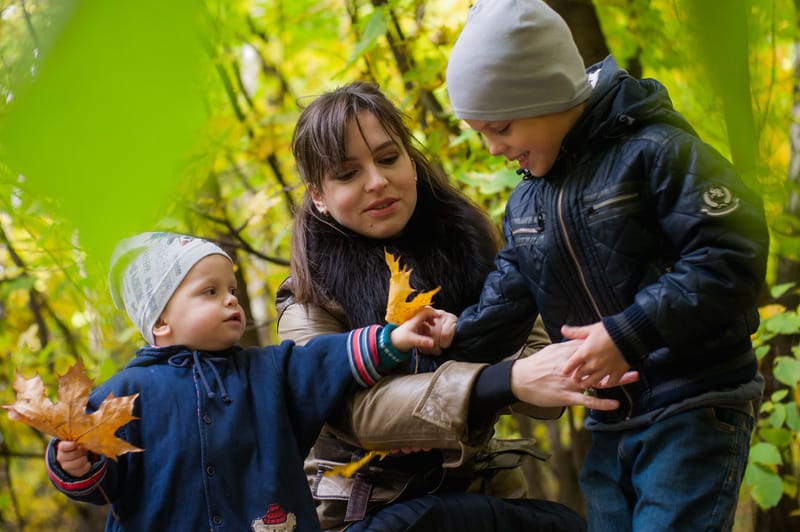5 Parenting Myths About Being a Good Parent
In today’s fast-paced, achievement-focused society, parenting often feels like a balancing act. Many parents feel pressured to fill their children's schedules with organised activities, buy the latest educational toys, and manage every moment of their child's day to ensure they grow up well-rounded. But what if parenting didn’t have to be this exhausting?
Around the world, different cultures have developed approaches to parenting that allow children to enjoy their childhood without overwhelming their parents. By taking inspiration from these cultures, parents can make small but powerful changes to foster independence, creativity, and responsibility in their children—without the added stress.
Here are five common myths about what “good parenting” entails, along with strategies based on global insights to help parents let go of unnecessary stress while still providing enriching experiences for their kids.
Parenting Myth #1: Kids Need Plenty of Toys to Be Happy
In many Western cultures, there is a common belief that children need an assortment of toys to stimulate their minds and keep them entertained. However, children from various cultures around the world thrive without a constant supply of store-bought toys. For instance, in some indigenous communities, children create their own playthings from objects found in nature or everyday household items. In Arctic towns, children play with old fishing equipment or build forts out of crates and pillows. These simple items fuel their creativity and encourage imaginative play.
Practical Tip: Instead of continuously purchasing new toys, parents can encourage children to use household items or recycled materials for play. A cardboard box can become a spaceship, and kitchen utensils can serve as instruments. This not only reduces clutter but also fosters resourcefulness and imagination. Allowing children to create their own toys gives them a sense of independence and creativity that store-bought toys can’t provide.
Parenting Myth #2: Children Need Special “Kid-Centric” Activities on Weekends
Many parents feel obligated to pack their weekends with child-specific activities, such as playdates, kiddie museums, and birthday parties. However, psychologists studying parenting practices in cultures like the Maya communities in Central America have found that children learn invaluable life skills by participating in adult activities rather than being confined to “kid-only” spaces. Through chores, errands, and family gatherings, children learn cooperation, patience, and responsibility—all essential for functioning in the adult world.

Practical Tip: Instead of planning separate activities for children, parents can involve them in day-to-day tasks. Take them along for grocery shopping, cooking, or even gardening. Explain what you're doing and let them help with simple tasks. This inclusion teaches them about the adult world and fosters responsibility. You might find that your child enjoys feeling involved in “grown-up” activities, and this can reduce the need for constant child-specific outings.
Parenting Myth #3: Kids Need Rewards or Punishments to Do Chores
Many parents rely on rewards like allowances or punishments to encourage children to do chores. However, studies of cultures such as the Maya and other indigenous communities reveal that children can have an intrinsic motivation to help. In these communities, children naturally pitch in with chores because they see it as their role within the family. They feel a sense of belonging and contribution, which motivates them to help without expecting a reward.
Practical Tip: To nurture a similar sense of responsibility, approach chores as family activities rather than assignments. Instead of assigning individual tasks, make chores a group effort. For example, everyone can help set the dinner table or fold laundry together. Also, make sure the tasks feel meaningful; children can quickly recognise “busy work” and may resist it. When children see that their contributions are valued, they develop a willingness to help out, feeling genuinely part of the family team.
Parenting Myth #4: Children Learn Best When Their Schedules Are Packed
Parents often feel pressured to enrol their children in various extracurricular activities to ensure they’re “well-rounded”. However, research has shown that free time—unstructured and child-led—is crucial for developing self-motivation, creativity, and even academic success. Children who have more control over their after-school activities display greater initiatives and are more likely to voluntarily do their homework.
Practical Tip: Instead of pre-planning every activity, give children space to decide what they want to do with their free time. If they express interest in a hobby, allow them to explore it at their own pace. By managing their time and choosing their activities, children learn autonomy and develop a sense of agency. Free time doesn’t equate to a lack of productivity—it encourages independent decision-making and helps children discover their true interests.
Parenting Myth #5: Only Specialised Classes Can Teach Valuable Skills
In Asian societies, there is a trend of sending children to specialised classes to learn various skills—art, music, coding, or sports. While such classes can be beneficial, they’re not the only ways for children to develop valuable skills. Across many cultures, children learn through observation and participation in daily life rather than through formal instruction. In Tanzania, for example, children help collect food and water for their families, a task that teaches responsibility, teamwork, and problem-solving.

Practical Tip: If your child shows an interest in learning something, consider informal methods of teaching. Cooking with a parent can teach math (measuring ingredients), science (mixing ingredients), and responsibility (cleaning up). Gardening, for example, can impart knowledge about nature, patience, and care. By making life itself a classroom, children learn practical skills in a meaningful context without the rigidity of formal classes.
Embracing a Balanced Approach to Parenting
While every family’s approach to parenting will be different, parents can draw inspiration from various cultures to relieve some of the pressures often associated with raising children. Studies suggest that children do not require constant structured activities, toys, or rewards to thrive. Instead, children benefit immensely from a home environment that allows them the freedom to explore, create, and contribute.
By simplifying the home environment, reducing packed schedules, and involving children in everyday adult activities, parents can create a nurturing space where kids can grow into confident, independent individuals. As parents, it’s natural to want the best for our children. Sometimes, however, “the best” simply means letting kids be kids—allowing them the freedom to play, learn, and grow on their own terms.
In the end, taking a more relaxed and less stressful approach to parenting may not only benefit children but also foster a healthier and more fulfilling family life.
Want to sharpen your parenting skills? Join the Parents Club to access exclusive content and get expert advice you need for your parenting journey.
Community Ambassador; as someone who was raised in a rather privileged family, I hope to address the inequity in educational outcomes based on the circumstance of birth. Bounced around between Australia and Singapore a fair bit.





